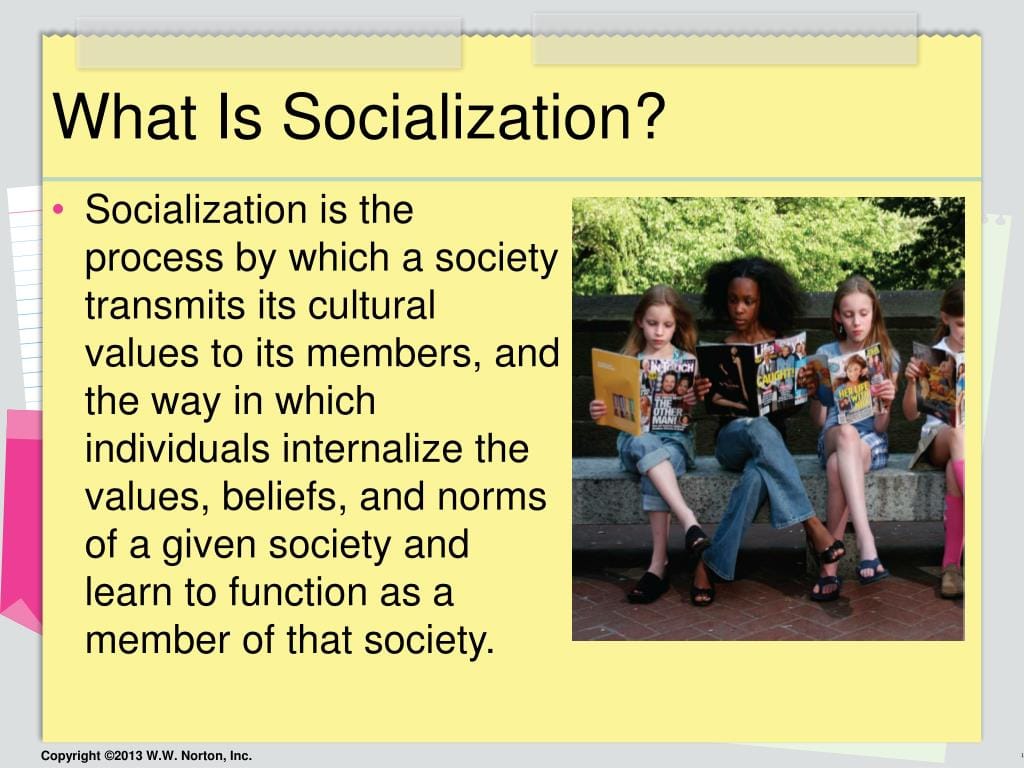Imagine a child playing doctor, complete with a miniature stethoscope and a concerned frown. Or picture a recent college graduate meticulously researching company culture before a job interview. These seemingly disparate scenarios share a common thread: anticipatory socialization. It’s the often-unconscious process of rehearsing for future roles by adopting the behaviors, beliefs, and values of groups we hope to join—a “dress rehearsal” for life’s next act.
Understanding Anticipatory Socialization
Have you ever found yourself subtly changing your speech, dress, or even opinions when considering a new job, joining a club, or moving to a new city? That’s likely anticipatory socialization at play. It’s the bridge between our present selves and the roles we aspire to fill, easing transitions and minimizing the uncertainty that comes with new experiences. This “pre-gaming” for social life allows us to learn the unwritten rules and expected behaviors, increasing our chances of fitting in and ultimately, achieving our social goals.
So, how does this process unfold? While rarely a conscious, step-by-step plan, it often involves:
- Targeting the Tribe: Identifying the group we want to belong to, whether it’s a professional organization, a social circle, or a cultural community.
- Scoping Out the Scene: Observing and gathering information about the group, consciously or unconsciously absorbing their customs, language, and values. This can involve direct interaction, online research, or simply watching from the sidelines.
- Trying on the Traits: Experimenting with new behaviors and attitudes associated with the target group. This might include changing our dress style, adopting new jargon, or adjusting our opinions on certain topics.
- Fine-Tuning the Fit: Evaluating how well our adopted behaviors resonate with the group and making further adjustments as needed. It’s a continuous feedback loop, a constant refinement of our approach until we feel comfortable and accepted.
Types of Anticipatory Socialization
Anticipatory socialization isn’t one-size-fits-all. It takes various forms depending on the context:
Vocational Anticipatory Socialization: Gearing up for a specific career. This might involve internships, shadowing professionals, or participating in relevant extracurricular activities. Think of a student teacher leading a classroom, a prospective lawyer interning at a law firm, or a budding entrepreneur developing a business plan. They’re not just gaining practical skills, but also absorbing the nuances of their future profession.
Organizational Anticipatory Socialization: Preparing for the culture of a specific organization. Many companies use onboarding programs and training to familiarize new hires with company values, policies, and workflows. This eases the transition into the new work environment and fosters a sense of belonging.
Benefits of the Social Dress Rehearsal
Why bother with the prep work? Anticipatory socialization offers a range of advantages:
- Smoother Transitions: By “previewing” a future role, we can bridge the gap between our current identity and our aspired self within the group. This reduces anxiety and promotes a more seamless transition into new environments.
- Boosting Social Mobility: Acquiring the skills, knowledge, and social capital valued by certain groups can enhance upward mobility within those groups and society.
- Strengthening Social Fabric: Shared values and expectations fostered through anticipatory socialization contribute to social stability and cohesion by creating a sense of community and belonging.
Real-World Examples
Examples of anticipatory socialization abound, spanning from childhood games to adult life transitions:
- Childhood Play: Children playing “house,” “school,” or “doctor” are enacting future roles and internalizing societal expectations.
- Career Preparation: College students participating in mock interviews, networking events, and career fairs are gaining valuable experience and insight into their chosen fields.
- Life Transitions: Expectant parents attending childbirth classes, reading parenting books, and connecting with other families are preparing for the challenges and joys of parenthood.
- Cultural Immersion: Individuals learning a new language and researching cultural customs before moving abroad are engaging in intercultural anticipatory socialization. Looking to delve deeper into the intricacies of acculturation in human geography? Uncover the fascinating dynamics of cultural adaptation and exchange in acculturation ap human geography.
The Future of Anticipatory Socialization
In our rapidly changing world, the ways we prepare for future roles are constantly evolving:
- The Tech Effect: Social media, online communities, and virtual worlds offer new avenues for anticipatory socialization. Individuals can connect with like-minded people, explore diverse cultures, and even practice virtual role-playing. However, the extent to which these virtual interactions translate to real-world success is an area of ongoing research.
- Crossing Cultures: As globalization intensifies, intercultural anticipatory socialization becomes increasingly crucial. Learning to navigate cultural differences and adapt to new social norms is essential for success in diverse environments.
- The Personal Touch: Personality, learning styles, and past experiences influence how individuals engage in anticipatory socialization. Some people are naturally adept at picking up social cues, while others may find it more challenging. There’s no single “right” way to prepare for the future.
Anticipatory Socialization vs. Resocialization
While both involve adapting to new social environments, anticipatory socialization and resocialization differ significantly:
- Anticipatory Socialization: A proactive, often voluntary process of preparing for future roles. It’s about learning the ropes before officially joining the game.
- Resocialization: A more reactive, often involuntary process of shedding old behaviors and adopting new ones, usually in a drastically different environment. Think of joining the military, entering a rehabilitation facility, or even starting at a new school with a drastically different culture. It’s a more radical transformation, often involving a complete overhaul of one’s identity and values.
The Nuances and Ongoing Research
While much is understood, research on anticipatory socialization continues to evolve. Some experts suggest that the increasing prevalence of online interactions may be reshaping the process. Others caution that virtual experiences may not fully prepare individuals for the complexities of real-world social dynamics. There is debate about how effectively virtual experiences translate to real-life scenarios, suggesting that this area is ripe for further research. The influence of social media and technology on shaping perceptions of future roles, the dynamics of intercultural anticipatory socialization in an increasingly globalized world, and the interplay between individual agency and societal structures in shaping this process are all promising avenues for further investigation.
The study of anticipatory socialization also raises questions about the relationship between individual agency and social structures. While we actively select the groups we aspire to join, our choices are often influenced by broader societal factors such as family background, cultural norms, and economic opportunities. Understanding this interplay is crucial for developing a more nuanced understanding of how we navigate the social world.
Conclusion: Embracing the Future, One Rehearsal at a Time
Anticipatory socialization is a fundamental human process, a subtle yet powerful force shaping our trajectories through life. By recognizing its influence and understanding its dynamics, we can harness its power to navigate transitions, build stronger connections, and ultimately, create more fulfilling lives. As society continues to evolve, so too will the ways in which we prepare for the future. This ongoing evolution underscores the importance of continued research and a critical approach to understanding the complexities of anticipatory socialization in a constantly changing world.
- Crypto Quotes’ Red Flags: Avoid Costly Mistakes - June 30, 2025
- Unlock Inspirational Crypto Quotes: Future Predictions - June 30, 2025
- Famous Bitcoin Quotes: A Deep Dive into Crypto’s History - June 30, 2025

















1 thought on “Navigating the Future: Anticipatory Socialization in a Changing World”
Comments are closed.